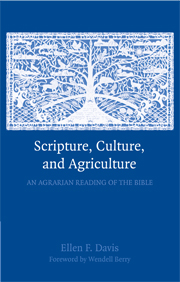It is especially active in Iraq and Afghanistan where soldiers are stationed fighting terrorism and promoting democracy; unfortunately this leads to us seeing extremism as being promoted by only by Muslims.
This of course isn't true, I remember Eric Rudolph's bombing of Olympic Park bombing in 1996 not to mention his other bombings around Atlanta in the mid-90s. His religion was that of Christianity. There are numerous other groups that claim Christianity as their religion and are extremists as well. Political groups can be extremists as well. The Nazis, Stalin's communism, Pol Pot and the Khmer Rouge were all extreme, of course they aren't called extremists, they are guilty of genocide interestingly enough.
But when you think about it, what really drives anyone to be so extreme? I don't think they are motivated so much by hate as they are by fear. And they fear that this other ideology is not simply against them but against the humanity that they care about. I know it sounds ridiculous. Consider Hitler, I would say that he hated the Jews not because they were Jews but because he loved Germany. Thus, to ensure the success of Germany he had to to away with the "Marxist Jews". I'll admit that this is extremely simplistic and a reading of Mein Kampf might help. It almost seems legitimate... almost.
I mean there is no justification for what Hitler did, or anyone who commits extreme acts of violence. But I can understand at least what drives them to it. Fear. Its like a last ditch effort, you see a high probability of failure, of destruction and somehow you need to find a way to fix it and then you find a scapegoat. The only course of action then is to take care of the problem, by blowing up Americans or abortion clinics or systematically killing a people group. To be honest, I find myself falling into these fears at times. Fears of psychological and eating disorders fueled by fashion models, fear of extremists Christians groups ruining the message of Christ, fears of corporations and government ruining the environment, fears of Obama ruining the nation... OK, so not really the last one, perhaps a fear of Glenn Beck ruining the nation...?
At any rate, I would say that they are substantial fears that, if realized, have far reaching implications. But what can I do? I mean, I feasibly can't change the corporate world of fashion or industry, I can't feasibly change the way politics are done, I can't feasibly change the crazy ideas of Christian extremists. What can I do? What course of action could I take that could change anything? The extremist idea would be to blow something up to send a message, and as an individual I could do that, and if there is enough planning you not only blow something up, but you do it big, like the Twin Towers, that sends a big message, or you do it intelligently that shuts down the function of something, like in Fight Club. I can easily see how fear could lead someone(s) to think in such a way, it is very simple (illogical) logic.
I am very thankful though that my fears are allayed by my faith in Christ. I don't have to commit extreme acts to ensure a place in an other worldly paradise, nor do I have to do so to make this place a paradise. Because this place will become paradise, whether I do anything to further that or not. I could actually play a part in destroying the world and it would become paradise, of course it would be a miserable existence until then, but it would become it nonetheless. This is the glory of the New Jerusalem being here on this 3rd planet from the Sun, and the glory that it is the risen Christ that will be the one who brings it. There is no need for me to exercise vengeance or justice either. I don't need to be the one that blows up those whom I think are committing acts of injustice or destruction, because it is the risen Christ that does that also. Thus, when I experience fear, I am not filled with hopelessness that drives extremism, I am filled with hope.
I hope that the work Christ began, he is finishing.


